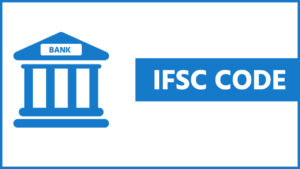
IFSC Codes
FAQ’s on IFCS Codes
1. What is IFSC?
Ans: IFSC, or Indian Financial System Code, is a unique alphanumeric code assigned to each bank branch in India. It is use to identify a specific branch in electronic fund transfer and other online transactions.
2. Why is IFSC important?
Ans: IFSC is crucial for electronic funds transfer systems like NEFT (National Electronic Funds Transfer), RTGS (Real Time Gross Settlement), and IMPS (Immediate Payment Service) to uniquely identify the destination bank branch.
3. How is an IFSC code structure?
Ans: An IFSC code is an 11-character code. The initial four characters denote the bank code, the fifth character is invariably “0,” and the concluding six characters distinguish the particular branch.
4. Where can I find the IFSC code of my bank branch?
Ans: IFSC codes can be find on a bank’s official website, on the cheque book, or by contacting the bank branch directly. There are also online databases and tools that provide IFSC codes for various banks.
5. Is the IFSC code the same for all branches of a bank?
Ans: No, each bank branch possesses its unique IFSC code. Even if the branches belong to the same bank, the last six characters of the IFSC code will differ for each branch.
6. Can an IFSC code be change?
Ans: IFSC codes are generally unique to each bank branch and are not changed frequently. However, in exceptional cases such as a branch closure or merger, the IFSC code may be update.
7. Do international transactions use IFSC codes?
Ans: No, IFSC codes are use for domestic transactions conducted within India. For international transactions, SWIFT codes are use to identify banks globally.
8. Can an IFSC code be used for any bank transaction?
Ans: IFSC codes are primarily use for electronic fund transfers within the country, such as NEFT, RTGS, and IMPS. They are not applicable for transactions outside the Indian banking system.
9. Is it necessary to provide IFSC code for all electronic fund transfers?
Ans: Yes, providing the correct IFSC code is essential for the accurate routing of funds during electronic fund transfers. Incorrect IFSC codes may result in failed transactions.
10. What is the difference between MICR and IFSC code?
Ans: IFSC is use for electronic fund transfers within India, while MICR (Magnetic Ink Character Recognition) code is use for processing cheques. MICR is printed at the bottom of cheque leaves.
11. Can two branches of different banks have the same IFSC code?
Ans: No, IFSC codes are unique for each bank branch. Even if two branches belong to different banks, their IFSC codes will be distinct.
12. How long does it take for funds to be transfer using IFSC in NEFT and
Ans: NEFT transactions are settle in hourly batches, while RTGS transactions are settle on a real-time basis.
The time taken for the funds to be transferred depends on the specific batch timings for NEFT and the real-time processing for RTGS.
13. Can I get the IFSC code through SMS?
Ans: Many banks offer SMS services to provide account information, including the IFSC code. Contact your bank’s customer support or visit their website for details on SMS services.
14. Is it secure to disclose my IFSC code to others?
Ans: While sharing your IFSC code is generally safe, avoid sharing sensitive banking details with unknown or untrusted sources. Always use secure channels for sharing financial information.
Visit for more information: https://www.rbi.org.in/
For further details access our website: https://vibrantfinserv.com
